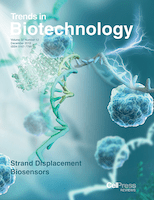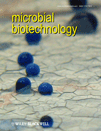
BioTech
Scope & Guideline
Catalyzing Collaboration Across Scientific Disciplines
Introduction
Aims and Scopes
- Molecular Biotechnology:
Research exploring genetic engineering, gene therapy, and molecular characterization of organisms, emphasizing innovations in manipulating genetic material for therapeutic and agricultural applications. - Environmental Biotechnology:
Studies on bioremediation, waste treatment, and sustainable practices that utilize biological systems to solve environmental issues and improve ecosystem health. - Food Biotechnology:
Investigations into the fermentation processes, food preservation techniques, and the development of functional foods through biotechnological methods. - Medical Biotechnology:
Research focusing on the application of biotechnological tools in medicine, including drug development, diagnostics, and therapeutic interventions. - Agricultural Biotechnology:
Studies aimed at improving crop resilience, yield, and nutritional value through biotechnological advancements, including genetic modification and microbial applications. - Computational and Systems Biology:
Research employing computational methods to analyze biological data, model biological systems, and improve our understanding of complex biological interactions.
Trending and Emerging
- CRISPR and Genome Editing Technologies:
There is a growing emphasis on the applications of CRISPR and other genome editing technologies, reflecting the rapid advancements and ethical considerations in modifying genetic material. - Microbiome Research:
Studies focusing on the human and environmental microbiome are on the rise, underscoring the importance of microbial communities in health, agriculture, and ecological balance. - Nanobiotechnology:
The integration of nanotechnology with biotechnology is emerging, particularly in drug delivery systems and materials science, highlighting potential applications in medicine and environmental remediation. - Sustainable Biotechnology Solutions:
Research aimed at sustainable practices, such as waste valorization and bio-based products, is gaining traction in response to global sustainability challenges. - Artificial Intelligence in Biotechnology:
The application of AI and machine learning in biotechnological research is increasingly prominent, facilitating data analysis, predictive modeling, and enhancing experimental methodologies.
Declining or Waning
- Traditional Agricultural Practices:
Research related to conventional breeding and agricultural practices is diminishing as emphasis shifts toward genetic engineering and biotechnological innovations. - Basic Microbiology:
While foundational microbiological studies remain important, there has been a noticeable decrease in publications focusing solely on basic microbiological principles without a biotechnological application. - Animal Biotechnology Ethics:
Discussions around the ethical implications of animal biotechnology are less frequent, possibly due to the increasing focus on plant-based and microbial biotechnologies. - Pharmaceutical Production Techniques:
Research specifically on traditional pharmaceutical manufacturing processes is declining as the focus moves towards biopharmaceuticals and novel drug delivery systems.
Similar Journals

JOURNAL OF BIOSCIENCE AND BIOENGINEERING
Empowering discoveries in biosciences for a better tomorrow.The JOURNAL OF BIOSCIENCE AND BIOENGINEERING, published by the SOC BIOSCIENCE BIOENGINEERING JAPAN, is an esteemed peer-reviewed journal dedicated to advancing knowledge in the fields of applied microbiology, biotechnology, and bioengineering. With its ISSN of 1389-1723 and E-ISSN 1347-4421, this journal has been providing a platform for innovative research since its inception in 1991, maintaining its relevance through periodic updates and a scope that encompasses various aspects of bioscience and engineering. The journal boasts a notable impact factor, reflecting its contributions to the Q2 and Q3 quartiles in relevant categories as of 2023, which positions it amongst the well-regarded publications in its field. Researchers and professionals can access its rich archive through open access options, ensuring wide dissemination of pivotal studies. With its address rooted in Osaka University, Japan, the journal serves as a vital resource for scientists and scholars committed to pushing the boundaries of biosciences and engineering.

Bioengineered
Unlocking the Potential of BiotechnologyBioengineered, published by TAYLOR & FRANCIS INC, is an esteemed Open Access journal that has been at the forefront of research in the fields of bioengineering, biotechnology, and applied microbiology since its inception in 2012. With an impressive impact factor reflecting its high-quality contributions, the journal is categorized in the top quartiles, achieving Q1 rankings in Applied Microbiology and Biotechnology, as well as in Biotechnology and Medicine (Miscellaneous) for 2023. This active engagement in showcasing pioneering research is critical for professionals and students alike, facilitating access to revolutionary studies and methodologies. The journal operates under an Open Access model since 2018, ensuring that groundbreaking findings in bioengineering are readily accessible to a global audience. Situated in the United Kingdom, Bioengineered not only serves as a platform for innovative research but also underscores the importance of interdisciplinary collaborations among scientists, engineers, and biotechnologists.

TRENDS IN BIOTECHNOLOGY
Cutting-edge Insights into Biotech TrendsTRENDS IN BIOTECHNOLOGY, published by CELL PRESS, stands as a premier journal since its inception in 1983, focusing on the dynamic and ever-evolving fields of bioengineering and biotechnology. With a notable impact factor and ranking in the top quartile (Q1) of its categories for 2023, this journal is recognized for its contribution to advancing scientific knowledge, boasting a Scopus rank of #5/311 in Biotechnology and #5/162 in Bioengineering, placing it in the 98th and 97th percentiles, respectively. Although it does not operate under an open access model, TRENDS IN BIOTECHNOLOGY ensures a rigorous peer-review process that provides a platform for high-quality research that influences both academic and industrial advancements. The journal's objectives encompass the dissemination of cutting-edge research findings, reviews, and insights that foster innovation in biotechnological applications, making it an invaluable resource for researchers, professionals, and students alike. With its broad scope across the intersection of biosciences and technology, TRENDS IN BIOTECHNOLOGY continues to lead discussions and developments that shape the future of the biotechnology landscape.

MOLECULAR BIOTECHNOLOGY
Pioneering Research in Biotechnology ApplicationsMOLECULAR BIOTECHNOLOGY, published by SPRINGERNATURE, is a pivotal journal in the fields of applied microbiology, molecular biology, biochemistry, and biotechnology. Since its inception in 1994, the journal has aimed to disseminate high-quality research that explores the intersection of molecular biology and technology, fostering advancements in biotechnology applications. With an ISSN of 1073-6085 and an E-ISSN of 1559-0305, it has established itself as a significant contributor to the scientific community, currently holding a Q3 ranking across multiple categories including Applied Microbiology & Biotechnology and Biochemistry in the 2023 metrics. Although not an open access publication, the journal remains accessible through various institutional subscriptions, providing valuable insights and findings to researchers and professionals. Given its ongoing commitment to quality and relevance, MOLECULAR BIOTECHNOLOGY serves as an essential resource for those involved in cutting-edge research and innovation in molecular biotechnology and related disciplines.

Biotecnia
Empowering scholars to shape the future of biotechnology.Biotecnia is a premier journal published by UNIV SONORA, dedicated to advancing the field of biotechnology through the dissemination of high-quality research and innovative findings. With its ISSN 1665-1456, this journal provides a vital platform for researchers, professionals, and students to share scholarly work that encompasses a diverse range of topics, including molecular biology, genetic engineering, and bioprocessing. Despite being based in Hermosillo, Mexico, Biotecnia’s reach extends globally, aiming to foster collaboration and knowledge exchange among the international scientific community. The absence of an open-access option enhances the journal's exclusivity while ensuring rigorous peer review, thus maintaining high academic standards. As biotechnology continues to play a pivotal role in resolving global challenges, Biotecnia stands as an essential resource for those committed to innovation and research excellence in this evolving discipline.

Applied Biological Research
Innovating Solutions Through Applied ResearchApplied Biological Research is a dynamic journal issued by the CENTRE ADVANCEMENT APPLIED SCIENCES, specializing in the interdisciplinary fields of biochemistry, genetics, and molecular biology. With its ISSN 0972-0979 and E-ISSN 0974-4517, this journal serves as a critical platform for the dissemination of peer-reviewed research that addresses pressing challenges and innovations within biological sciences. Although currently it does not adopt an Open Access model, it is dedicated to fostering academic discourse through rigorous publication practices. The journal's impact is underscored by its Scopus rankings, which place it in the 4th and 2nd percentiles in respective categories, emphasizing its emerging influence in the scientific community. Covering research from 2020 to 2024, Applied Biological Research is positioned as an essential read for researchers, professionals, and students seeking to stay at the forefront of biological research and application. Based in the beautiful region of Jammu & Kashmir, India, this journal is committed to advancing applied sciences through innovative research and outreach.

Microbial Biotechnology
Championing open access to transformative microbial research.Microbial Biotechnology, published by WILEY, stands at the forefront of innovation in the field of applied microbiology and biotechnology, showcasing cutting-edge research and advancements within both academic and industrial contexts. As an Open Access journal since 2012, it ensures that high-quality research is easily accessible to researchers, professionals, and students globally, promoting knowledge sharing and collaboration. With an impressive impact, the journal holds a Q1 ranking in its categories—Applied Microbiology and Biotechnology, Biochemistry, Bioengineering, and Biotechnology—demonstrating its significance in the scientific community. The journal currently boasts a strong Scopus ranking in several relevant disciplines, including a top 10% position in Applied Microbiology and Biotechnology, highlighting its critical role in disseminating influential findings. Designed to foster dialogue and advance technology within the microbial sciences, Microbial Biotechnology is an essential resource for anyone committed to leveraging microbial processes for sustainable and innovative solutions.

BIOTECHNOLOGY AND BIOPROCESS ENGINEERING
Connecting Researchers to the Future of BiotechnologyBIOTECHNOLOGY AND BIOPROCESS ENGINEERING, published by the Korean Society for Biotechnology and Bioengineering, is a prominent journal in the fields of applied microbiology, biotechnology, bioengineering, and biomedical engineering. Since its inception in 1996, this journal has served as a vital platform for researchers and professionals, facilitating the dissemination of cutting-edge research and innovative applications related to bioprocesses and biotechnology systems. With an ISSN of 1226-8372, this journal is ranked within the Q3 quartile across several categories, demonstrating its relevance and impact in the academic community. Although it operates under traditional access modalities, the journal strives to provide quality and timely insights into the advancements in bioprocess technology and microbial applications, fostering a collaborative environment for knowledge exchange. Notably, it is indexed with a respectable presence on Scopus, making it a valuable resource for students and professionals seeking the latest developments in biotechnology. For more details, kindly refer to the Korean Science Technology Center, #704 Yeoksam-Dong, Gangnam-Ku, Seoul 135-703, South Korea.

Current Research in Biotechnology
Empowering Researchers to Shape the Biotechnological LandscapeCurrent Research in Biotechnology is a leading journal published by Elsevier, dedicated to the dissemination of high-quality research in the rapidly evolving field of biotechnology. With an ISSN of 2590-2628, this journal has garnered a reputation for its insightful contributions, currently holding a prestigious Q2 ranking in the Biotechnology category, and placing in the 66th percentile within the Scopus rankings for Biochemistry, Genetics, and Molecular Biology. Running from 2019 and set to continue through 2024, the journal aims to provide a platform for groundbreaking studies that advance our understanding and application of biotechnological innovations. Although it operates under a subscription model, the journal ensures that research impacts a wide audience, facilitating collaboration among researchers, professionals, and students across the globe. By focusing on a diverse range of topics within biotechnology, Current Research in Biotechnology is committed to cultivating a vibrant discourse and fostering advancements that address critical challenges in health, agriculture, and environmental sustainability.

APPLIED BIOCHEMISTRY AND BIOTECHNOLOGY
Unlocking the Future of Applied ScienceApplied Biochemistry and Biotechnology is a leading journal published by Springer, dedicated to advancing research in the interdisciplinary fields of biochemistry, biotechnology, and applied microbiology. Established in 1981, this peer-reviewed journal covers a wide range of topics that encompass innovative techniques, methodologies, and applications of biochemistry and biotechnology in medicine, environmental engineering, and molecular biology. With a Q2 ranking in several categories and an increasing impact factor, the journal demonstrates significant influence and credibility within the scientific community. While traditionally subscription-based, the journal offers avenues for open access through selective agreements, making high-quality research accessible to a broader audience. Researchers, professionals, and students alike will find Applied Biochemistry and Biotechnology to be an invaluable resource for the latest developments and applications in biochemistry and its related fields, aiding in the quest for sustainable solutions and novel biotechnological advancements.